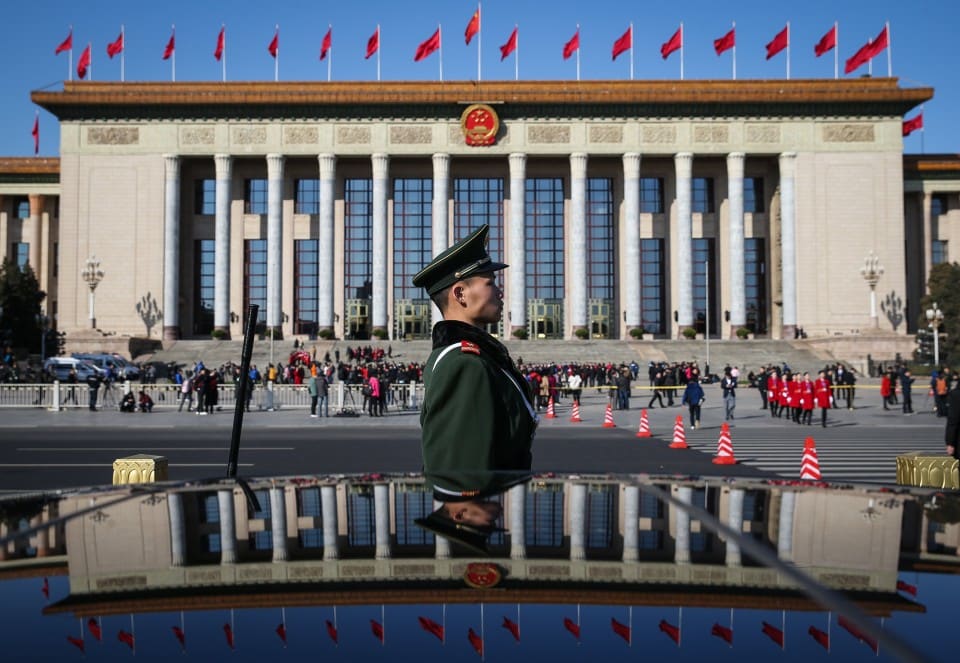Maria Repnikova is an assistant professor in global communications at Georgia State University and the director of the Center for Global Information Studies. Her body of work focuses on China’s political communication practices.
China is often described as ruthless and dystopian. Escalating censorship, intensified propaganda and the social credit system present a threatening new mode of Internet governance to the West, one where the freewheeling World Wide Web seems “captured” by the Chinese Communist Party.
Such increases in control, however, do not tell the whole story. Since the inception and spread of the Internet in China, the Chinese party-state has attempted to use the Internet for governance and legitimacy-building as well as for weeding out sensitive information. Chinese President Xi Jinping has referred to the Internet as a “battlefield” where the party struggles to sway public opinion. And that effort means that alongside control, Chinese authorities scrupulously listen to and study public opinion online, engage with and respond to public grievances, and creatively mobilize the public through interactive social media tools.
Grasping public sentiment has long been at the heart of the party’s governance. In the pre-Internet age, it was primarily the traditional media that filtered public concerns upwards to the party. In the Internet age, the public opinion platform has expanded and decentralized, with streams of social media commentaries available for “study” to both officials and journalists. In my book, “Media Politics in China,” I found that Chinese media regulators closely analyze social media content when shaping media policy. Censorship and propaganda instructions to journalists correspond to the popularity of certain issues on social media, with more popular topics provoking both restrictions and timelier policy responses. For instance, following the 2012 Beijing floods, which took many innocent lives, the authorities banned the media from investigating the disaster despite public outrage on Weibo. Instead, they used the media to channel official responses to public concerns, such as addressing infrastructure complaints and explaining rescue efforts.
Online opinion monitoring goes beyond media regulation. Across party and state bureaus, many officials’ sole function is to spot important trends and preempt “public opinion incidents,” sensitive moments of public mobilization on contentious social issues that at times translate into offline protests. Much of this work is also delegated to private companies. Some studies indicate that there are now over 2 million public opinion analysts and over 800 businesses in China that are responsible for public opinion monitoring.
The monitoring is accompanied by official online engagement with the public, a process some scholars describe as “authoritarian deliberation.” Officials are increasingly encouraged, and in some cases required, to set up public profiles on Weibo, China’s version of Facebook, and WeChat, a mobile chat app. The number of official Weibo accounts now slightly exceeds 137,000, and the number of official WeChat accounts is over 100,000. These numbers will likely continue to grow.
Chinese citizens post a variety of queries to these official accounts, from the state of public bathrooms to questions about housing demolitions and water quality. Officials can be held publicly accountable for their responsiveness on social media. Every week, China’s biggest official news outlet, People’s Daily, for instance, ranks official Weibo accounts’ effectiveness in solving problems.
Responsiveness to public opinion is especially critical during crises. The tragic 2003 SARS cover-up has taught Chinese officials that a complete shut down of information is no longer an option, sparking an entire industry of crisis communication training. Local officials are now intensively trained by academics and public relations firms to manage public opinion crises. The Internet is presented to them as one of their major tools for conveying a timely official response. And while some local officials still try to hide information, the overall trend is toward cautious, controlled transparency.
Finally, my research with the researcher Kecheng Fang at the University of Pennsylvania shows that the decline of traditional channels for party propaganda has inspired Chinese authorities to take advantage of digital platforms to make persuasion more playful and interactive. Since 2014, party media outlets have recruited young talent to launch and operate their public WeChat accounts. These accounts, many with intentionally different names from their official media umbrellas, mix politics with entertainment content and even relationship advice.
These outlets are also highly interactive. Some platforms allow users to track Xi’s travels, while others offer a chance to win apple-picking vouchers and Kindles in exchange for reposting official content. Social media users take part in a process we describe as “authoritarian participatory persuasion 2.0” whereby digital persuasion content is increasingly co-produced through interactions between officials and online users.
The digital governance efforts in China have had mixed success. A recent study of the use of micro-blogs by local officials finds that while these platforms may enhance service provision, they leave the balance of power between officials and citizens largely unchanged. Our research on official digital persuasion found that such practices can also facilitate unanticipated pushback, as social media users creatively mock propaganda attempts.
Digital mobilization, of course, is imperfect in any political system. But the biggest tension in China’s digital governance is between the quest for intensified control and the desire for public engagement. If the former starts to overpower the latter, then this balancing act will become harder to maintain. China’s political system has thus far been remarkably distinct from other authoritarian counterparts in its “consultative” and “responsive” nature. It remains to be seen if these adjectives will apply to it in the future.
This was produced by The WorldPost, a partnership of the Berggruen Institute and The Washington Post.




